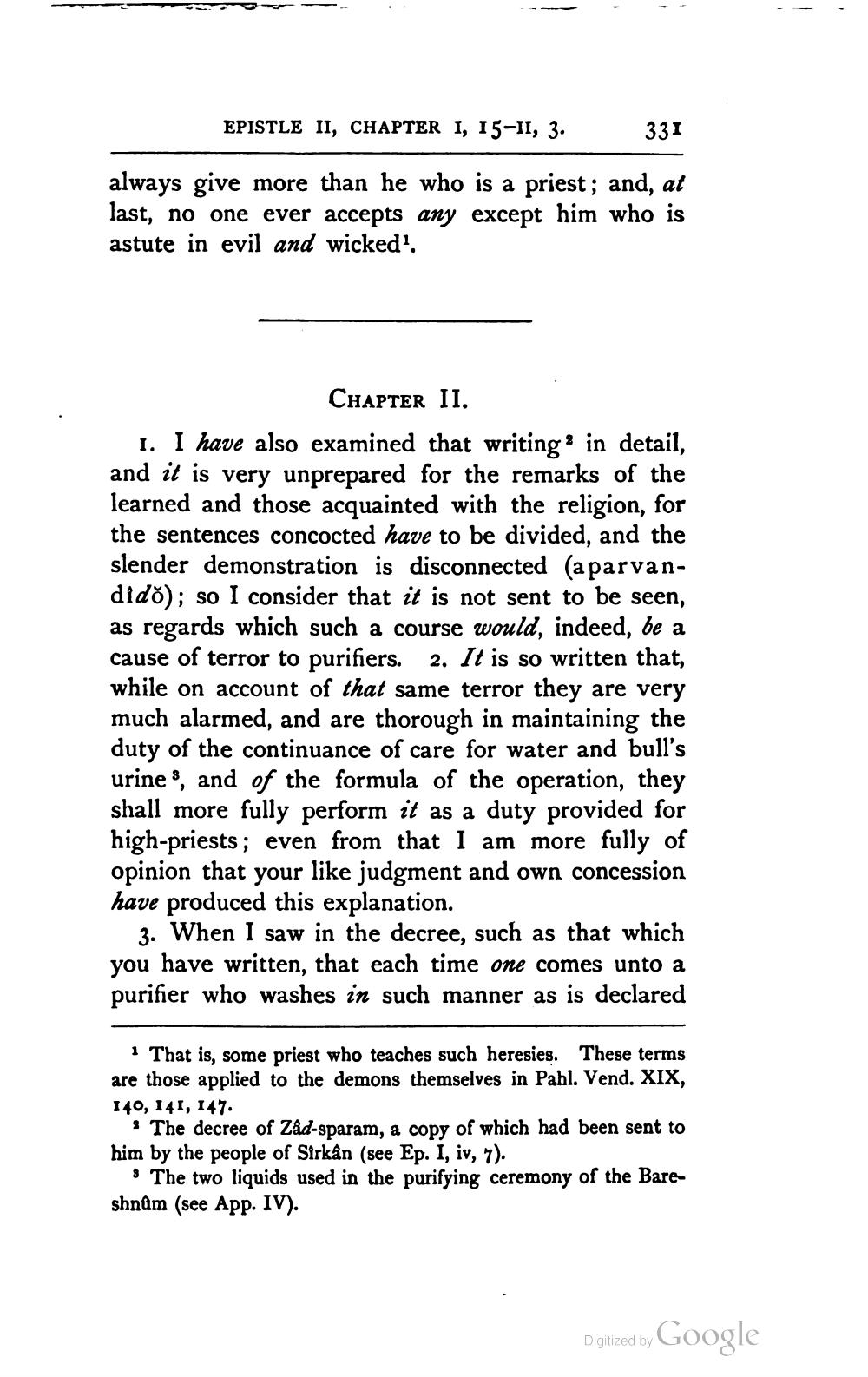________________
EPISTLE II, CHAPTER I, 15-11, 3.
331
always give more than he who is a priest; and, at last, no one ever accepts any except him who is astute in evil and wicked'.
CHAPTER II. 1. I have also examined that writing in detail, and it is very unprepared for the remarks of the learned and those acquainted with the religion, for the sentences concocted have to be divided, and the slender demonstration is disconnected (a parvandido); so I consider that it is not sent to be seen, as regards which such a course would, indeed, be a cause of terror to purifiers. 2. It is so written that, while on account of that same terror they are very much alarmed, and are thorough in maintaining the duty of the continuance of care for water and bull's urines, and of the formula of the operation, they shall more fully perform it as a duty provided for high-priests; even from that I am more fully of opinion that your like judgment and own concession have produced this explanation.
3. When I saw in the decree, such as that which you have written, that each time one comes unto a purifier who washes in such manner as is declared
1 That is, some priest who teaches such heresies. These terms are those applied to the demons themselves in Pahl. Vend. XIX, 140, 141, 147.
· The decree of Zad-sparam, a copy of which had been sent to him by the people of Sirkân (see Ep. I, iv, 7).
The two liquids used in the purifying ceremony of the Bareshnům (see App. IV).
Digitized by Google




